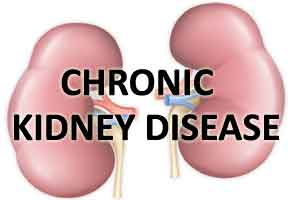- Home
- Editorial
- News
- Practice Guidelines
- Anesthesiology Guidelines
- Cancer Guidelines
- Cardiac Sciences Guidelines
- Critical Care Guidelines
- Dentistry Guidelines
- Dermatology Guidelines
- Diabetes and Endo Guidelines
- Diagnostics Guidelines
- ENT Guidelines
- Featured Practice Guidelines
- Gastroenterology Guidelines
- Geriatrics Guidelines
- Medicine Guidelines
- Nephrology Guidelines
- Neurosciences Guidelines
- Obs and Gynae Guidelines
- Ophthalmology Guidelines
- Orthopaedics Guidelines
- Paediatrics Guidelines
- Psychiatry Guidelines
- Pulmonology Guidelines
- Radiology Guidelines
- Surgery Guidelines
- Urology Guidelines
Premature birth linked to increased risk of chronic kidney disease into later life

Preterm and early term birth are strong risk factors for the development of chronic kidney disease (CKD) from childhood into mid-adulthood, suggests a study from Sweden published by The BMJ today.
Given the high levels of preterm birth (currently 10% in the US and 5-8% in Europe), and better survival into adulthood, these findings have important public health implications, say the researchers.
Preterm birth (before 37 weeks of pregnancy) interrupts kidney development and maturity during late-stage pregnancy, resulting in fewer nephrons forming (filters that remove waste and toxins from the body).
Lower nephron number has been associated with the development of high blood pressure and progressive kidney disease later in life, but the long-term risks for adults who were born prematurely remain unclear.
So a team led by Professor Casey Crump at the Icahn School of Medicine at Mount Sinai in New York set out to investigate the relation between preterm birth and risk of CKD from childhood into mid-adulthood.
Using nationwide birth records, they analyzed data for over 4 million single live births in Sweden during 1973-2014. Cases of CKD were then identified from nationwide hospital and clinic records through 2015 (maximum age 43 years).
Overall, 4,305 (0.1%) of participants had a diagnosis of CKD, yielding an overall incidence rate of 4.95 per 100,000 person-years across all ages (0-43 years).
After taking account of other factors that might be important, they found that preterm birth (less than 37 weeks) was associated with a nearly twofold increased risk of CKD into mid-adulthood (9.24 per 100,000 person-years). Extremely preterm birth (less than 28 weeks) was associated with a threefold increased risk of CKD into mid-adulthood (13.33 per 100,000 person-years).
A slightly increased risk (5.9 per 100,000 person-years) was seen even among those born at early term (37-38 weeks).
The association between preterm birth and CKD was strongest up to age 9 years, then weakened but remained increased at ages 10-19 years and 20-43 years.
These associations affected both males and females and did not seem to be related to shared genetic or environmental factors in families.
This is an observational study, and as such, can’t establish cause, and the researchers acknowledge some limitations, such as a lack of detailed clinical data to validate CKD diagnoses and potential misclassification of CKD, especially beyond childhood.
However, the large sample size and long-term follow up prompt the researchers to conclude that preterm and early term birth “are strong risk factors for the development of CKD from childhood into mid-adulthood.”
People born prematurely “need long term follow-up for monitoring and preventive actions to preserve renal function across the life course,” they add.
And they call for additional studies to assess these risks in later adulthood, and to further explain the underlying causes and clinical course of CKD in those born prematurely.
For more details click on the link: http://www.bmj.com/content/

Disclaimer: This site is primarily intended for healthcare professionals. Any content/information on this website does not replace the advice of medical and/or health professionals and should not be construed as medical/diagnostic advice/endorsement or prescription. Use of this site is subject to our terms of use, privacy policy, advertisement policy. © 2020 Minerva Medical Treatment Pvt Ltd